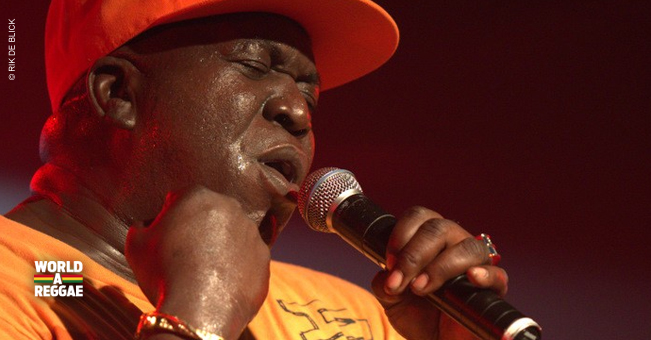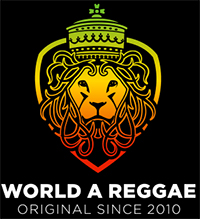Barrington Levy was one of the first singers to challenge the dominance of DJs in 80s dancehall reggae, although his earliest recording, under the name of the Mighty Multitude (“My Black Girl” in 1977), predated that era. Another early single, “A Long Long Time Since We Don’t Have No Love” in 1978, followed the first into obscurity, but Barrington, undaunted, went into the dancehalls.
By 1981 Levy’s effortlessly buoyant voice had spread his fame to the point where Henry “Junjo” Lawes, at the time the most in-demand producer in Jamaica, pursued him. His first Junjo single was “Ah Yah We Deh”, which sold moderately well, as did two further releases. His fourth single, “Collie Weed”, was a great success. Levy did not sound like anyone else: he perhaps revealed some of Jacob Miller’s style, and a little of Bob Andy’s influence, but his phrasing evoked the raw energy of the dancehalls. While other singers were struggling, Levy was slugging it out at the top.
His debut, Bounty Hunter, sold well and a string of singles consolidated his position: “Robber Man”, “Black Rose”, “Like A Soldier”, the massive hits “Money Move” and “Shine Eye Gal”, and the stunning “Prison Oval Rock”, and a series of albums were released between 1982 and 1985 to capitalize on his success. He later denounced many of these as “joke business”, being packaged with old singles, out-takes and one-off private sound system recordings. He performed his first UK gigs in 1984, including an appearance as a winner at the UK Reggae Awards. He then linked with young producer Jah Screw and enjoyed a big hit with “Under Mi Sensi”. He followed it with “Here I Come”, which was a hit in the soul clubs and scraped the UK charts when licensed by London Records, who also issued an album of the same title.
However, Screw and Levy made the mistake of courting crossover success and he sounded lost on subsequent rocky singles. Levy travelled between Jamaica, London and New York, and although he lost momentum at the end of the 80s, he still had all the talent of his peak period, as Love The Life You Live made clear. Two Bob Andy cover versions, “Too Experienced” and “My Time”, brought him back to the forefront of reggae, and he signed to Island Records in 1991 for the fine Divine set. While it remains to be seen whether he can ever achieve the broader success that seemed to be his in the mid-80s, he remains one of reggae’s most powerful and original voices.
More info:
VIDEO:


